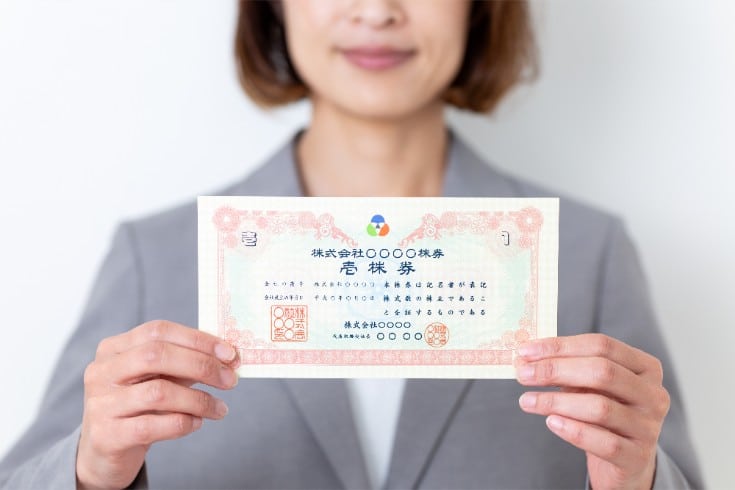Can an Employment Contract's Non-Competition Obligation Prohibit a Job Change to a Competitor?

When an employee decides to change jobs, there is a risk for the company that its information and know-how could be taken out and used externally. One way to avoid such risks is to include a non-compete clause in the employment contract, which prevents the employee from moving to a competitor. However, the validity of a non-compete clause that restricts an employee’s freedom to choose their profession, in relation to the freedom of choice of occupation (Article 22, Paragraph 1 of the Japanese Constitution), needs to be considered. In this article, we will explain the validity of non-compete clauses that prevent employees from moving to competitors.
https://monolith.law/corporate/difference-contract-dispatch-loan-labor-supply[ja]
What is a Non-Compete Clause Prohibiting Employment with Competitors?

A non-compete clause prohibiting employment with competitors due to a non-competition obligation refers to a clause that stipulates an obligation not to work for a company that competes with the employer or to start a business on one’s own (non-competition obligation). Regarding the non-competition obligation, even if there is no special clause stipulated in the employment contract, etc., it is recognized based on the principle of good faith when the worker is still employed.
On the other hand, regarding post-employment, it is generally not possible to recognize a non-competition obligation based on the principle of good faith, as the employment contract has ended. Therefore, in order to impose a non-competition obligation on the worker, it is necessary to stipulate a non-compete clause prohibiting employment with competitors in the employment contract in advance, or to conclude an agreement or submit a pledge, etc., when the worker resigns.
https://monolith.law/corporate/conclusion-of-retirement-agreement[ja]
Validity of Non-Compete Clauses Prohibiting Employment with Competitors (In Relation to the Freedom of Career Choice)
One way to impose a non-compete obligation after an employee’s resignation is to include a clause in the employment contract prohibiting employment with competitors. However, even if such a clause is included, its validity is not always guaranteed due to its potential conflict with the worker’s freedom of career choice. A non-compete clause that restricts employment with competitors can limit a worker’s freedom of career choice (Article 22, Paragraph 1 of the Japanese Constitution). If this restriction is too severe, it may be deemed invalid as it goes against public order and morals. Therefore, it is necessary to carefully consider the content of the non-compete clause in the employment contract to ensure its validity.
Criteria for Determining the Validity of Non-Compete Clauses Prohibiting Employment with Competitors
There are several court precedents regarding the validity of non-compete clauses that prohibit employment with competitors. One such case is the Foseco Japan Limited case (Nara District Court, Showa 45 (1970), October 23, Judgment No. 624, p.78), which states the following about the validity of such clauses:
“It goes without saying that if the restriction on competition exceeds a reasonable range and unfairly restrains the freedom of the debtor’s choice of occupation, threatening their livelihood, such restriction is against public order and morals and is invalid. However, in determining this reasonable range, it is necessary to carefully examine the duration of the restriction, the geographical scope, the range of occupations subject to the restriction, and the presence or absence of compensation, from the three perspectives of the creditor’s interest (protection of trade secrets), the debtor’s disadvantage (restriction on changing jobs or reemployment), and social interests (risk of monopoly concentration and the interests of general consumers associated with it) (underline by the author).”
Another case is the Tokyo Legal Mind case (Tokyo District Court, Heisei 7 (1995), October 16, Labor Judgment No. 690, p.75), which states the following about the validity of such clauses:
“In considering whether a non-compete clause is valid, it is necessary to take into account the position the worker held under the employer, the type of duties they were engaged in, how the period, region, and target occupations of the prohibition of competitive activities are defined in the special agreement, and what specific restrictions the retired officer or worker will face in taking up a profession. It is necessary to judge whether it is necessary to impose a non-compete obligation on the retired worker for the defense of the employer’s trade secrets and to endure the disadvantages, and whether these disadvantages do not exceed the necessary limits. It is not essential for the employer to have taken compensation measures for the imposition of the non-compete obligation in order to judge the special agreement as valid, but it should be considered as a supplementary reason (underline by the author).”
The validity of non-compete clauses that prohibit employment with competitors is not judged in a standardized manner, but is judged individually in relation to specific circumstances, as mentioned above. However, it is believed that the precedents judge the validity based on the following elements:
Non-Competition Period
A lengthy non-competition period can undermine the validity of a non-compete clause.
The duration of the non-competition period is a crucial factor in determining the validity of a non-compete obligation. However, the courts do not mechanically judge the validity of a non-compete clause based solely on the length of the non-competition period. Instead, they consider whether the non-competition period is appropriate in relation to other circumstances. In the Shin-Osaka Trade Case (Osaka District Court, Heisei 3.10.15 (1991), Labor Case No. 596, Paragraph 21), the court ruled that a non-competition period of three years was not unreasonable, considering the following circumstances:
- The sales manager made it almost impossible to use customer information after his resignation and took away clients.
- He poached two employees when he resigned, and he himself conducted guidance that seemed to allow competitive activities, which undermined the competitiveness of the company he was affiliated with before his resignation.
On the other hand, in the Tokyo Freight Company Case (Urawa District Decision, Heisei 9.1.27 (1997), Judgment Time No. 1618, Page 115), the court invalidated a non-compete clause without any restrictions on the duration, region, or type of job, considering factors such as the absence of compensation measures and the circumstances surrounding the establishment of the non-compete clause.
Non-Competition Area
A broad non-competition area can undermine the validity of a non-compete clause.
Regarding the non-competition area, it is not mechanically judged that the non-compete clause is invalid because the area is unlimited, or that the non-compete clause is valid because the area is limited. Instead, it is judged from the perspective of whether the non-competition area is appropriate in relation to other circumstances. In the case of Foseco Japan Limited (Nara District Court, Showa 45 (1970), October 23, Judgment No. 624, p.78), the company where the employee was employed before retirement was in a specialized field of business, and the non-competition period was relatively short at two years. Therefore, even if the non-competition area was unlimited, the non-compete clause was judged to be valid.
Scope of Prohibited Activities
The broader the scope of prohibited activities, the more likely it is to negate the validity of a non-compete clause.
In the Asahi Pritech case (Fukuoka District Court, Heisei 19 (2007).10.5), a non-compete clause that stipulated “all clients of the current company” was pointed out as having a “wide range (type and region) of transactions subject to competition prohibition”, and was judged to be invalid.
Status and Position of the Prohibited Person
If the person in question holds a high status or position, it is assumed that they have access to important and confidential information. This tends to affirm the validity of the non-compete clause.
In the case of Foseco Japan Limited (Nara District Court, Showa 45 (1970), October 23, Judgment No. 624, p.78), the non-compete clause was deemed valid for employees who were in a position to handle the company’s technical secrets before they left the company.
On the other hand, in the case of ordinary employees who do not handle important company information, non-compete clauses are often deemed invalid. For example, in the Kiyoshi System case (Osaka District Court, Heisei 12 (2000), June 19, Labor Judgment No. 791, p.8), the non-compete clause for factory workers was denied due to the simplicity of the work and the fact that the workers were not in a position to handle the company’s know-how. The lack of any compensatory measures was also taken into account, and the validity of the six-month non-compete clause was denied.
Existence of Compensation Measures
If sufficient compensation measures are taken, it tends to affirm the validity of the non-competition clause.
In the Japanese Aflac case (Tokyo District Court decision, Heisei 22 (2010).9.30, Labor Case No. 1024, p.86), considering the circumstances such as high annual income based on the position of executive officers, granting of stock options, and payment of high retirement allowances, it was judged that the non-competition clause, which was set for two years, was valid for one year.
On the other hand, in the Tokyo Freight Company case (Urawa District Court decision, Heisei 9 (1997).1.27, Judgment No. 1618, p.115), it was considered that a smaller amount of retirement allowance than originally was paid, and it was judged that it was not a compensation measure commensurate with the prohibition of competitive behavior. Also, in the New Japan Science case (Osaka District Court decision, Heisei 15 (2003).1.22, Labor Case No. 846, p.39), it was considered that no retirement allowance or other compensation measures were paid, and only a monthly confidentiality allowance of 4,000 yen was paid during employment, and it was judged that it was not a compensation measure commensurate with the prohibition of competitive behavior.
Responsibility of Employees in Case of Violation of Non-Compete Clauses Prohibiting Employment with Competitors

If a non-compete clause prohibiting employment with competitors is valid and an employee violates it, the company may consider actions such as claiming damages for breach of contract or seeking an injunction against the competitive activities.
However, unlike a claim for damages, an injunction against competitive activities significantly restricts the freedom of employees to choose their profession. Therefore, in order to be granted, it is necessary to prove not only that the employment contract or similar document contains a clause allowing for an injunction against competitive activities, but also that if left unaddressed, the company would suffer irreparable harm (as seen in the aforementioned Foseco Japan Limited case).
Duration of Non-Compete Clauses Prohibiting Employment with Competing Companies
When it comes to the duration of non-compete clauses that prohibit employment with competing companies, if the period is excessively long, it may be deemed invalid as it goes against public order and morals. In practice, many cases stipulate a period of 2 years, and it seems that the longest duration is often set at 3 years. However, the way this period is set is case-by-case, so it is necessary to determine an appropriate period in relation to the specific circumstances.
Examples of Non-Compete Clauses Prohibiting Employment with Competing Companies
Examples of non-compete clauses prohibiting employment with competing companies can be as follows:
Article ○ (Prohibition of Competition)
Employees shall not engage in business that competes with the company or be employed by a competing company without the company’s permission, not only during their employment but also for two years after their resignation.
Article ○ (Injunction Request)
1. The company can demand an immediate cessation of competition if an employee violates the provisions of the previous article.
2. The request in the previous paragraph should be made by registered mail with a certificate of contents, and should indicate a deadline for the employee to respond to the company.
3. If there is no response by the specified deadline, it will be assumed that there is no intention to cease competition.
Article ○ (Claim for Damages)
The company can claim damages against the individual if the company suffers damage due to the competition.
Summary
We have discussed the validity of non-competition clauses in employment contracts that prohibit employees from moving to competitors. Given the risk of important company know-how being leaked externally due to competitive activities by employees, it is necessary to clearly stipulate non-competition clauses in employment contracts. We often receive questions from corporate legal personnel asking if the non-competition period can be indefinite. However, caution is needed as making the non-competition period indefinite may be deemed invalid for violating public order and morals.
As for the non-competition clauses in employment contracts that prohibit employees from moving to competitors, as introduced in this article, it is necessary to consider them individually in relation to specific circumstances. Therefore, it is desirable to seek advice from a lawyer.





















